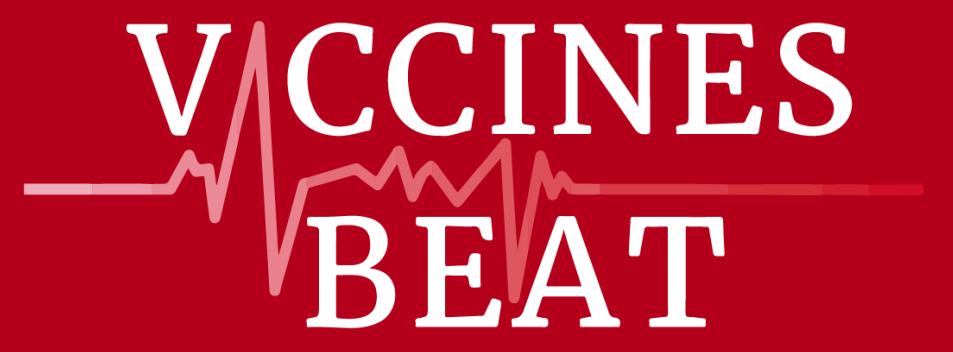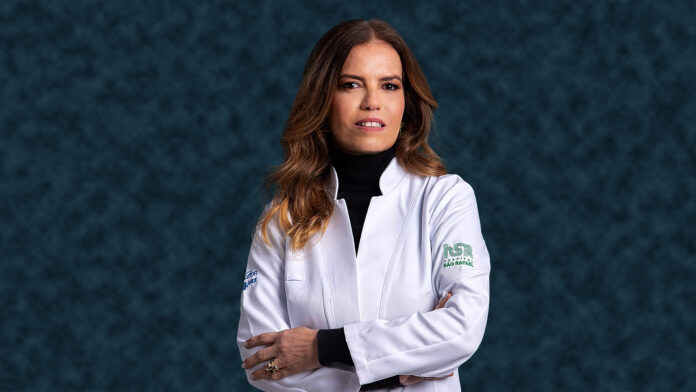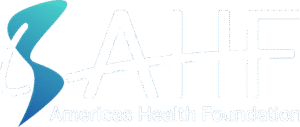Professor Sue Ann Costa Clemens is a leading expert in Pediatric Infectious Diseases, Vaccinology, and Global Health. She currently serves as Co-founder and Professor of the Master’s Program in Vaccinology and Drug Development at the University of Siena, Professor of Global Health and Clinical Development at the University of Oxford, and Director of the Oxford Latin America Research Group. She is also Co-founder and Head of the Institute for Global Health at the University of Siena, Head of the Clinical and International Relations Department at the Carlos Chagas Institute in Rio de Janeiro, Brazil, and Senior Advisor for Vaccine Development at the Gates Foundation.
With over 25 years of experience, Prof. Costa has played a pivotal role in the development of more than 20 licensed vaccines and pharmaceuticals. Her contributions include the development of vaccines for rotavirus, HPV, pneumococcal conjugate (PCV), and COVID-19—that have saved millions of lives, reduced long-term disability, and significantly advanced global public health. She was one of the Principal Investigators (PI) for the Oxford/AstraZeneca COVID-19 vaccine and contributed to the development of the first vaccine to receive WHO Emergency Use Listing (EUL): the novel oral type 2 polio vaccine, of which already more than 1.5 billion doses have been distributed to contain cVDPV2 outbreaks.
In recognition of her extraordinary contributions to science and public health, Prof. Costa was appointed Commander of the Order of the British Empire (CBE) by Queen Elizabeth II. She has also been twice honored by the Brazilian government with the Orders of Rio Branco and Medical Merit.
Beyond her scientific achievements, she has been deeply committed to education and capacity building in global health. She established the world’s first pioneering Master’s program in Vaccinology and Drug Development and has consistently supported initiatives in public health education, immunization awareness, and equitable vaccine access.
During the COVID-19 pandemic, she authored History of a Vaccine, with a foreword by the British Ambassador to Brazil. She also contributed the chapter on clinical development to The First 100% Brazilian COVID-19 Vaccine.
Prof. Costa continues to advise major global health institutions, including serving as a Senior Advisor for the Gates Foundation, and was a member of the WHO Technical Advisory Group on Market Information for Access to Vaccines (TAG-MI4A). She also is member of scientific advisory boards of several pharmaceutical, academia and non governamental funding institutions.
Inspiration
Prof. Costa’s commitment to public health began in childhood. Accompanying her father on visits to underserved communities and orphanages, she witnessed firsthand the realities of inequality. These visits were not just acts of charity, they involved hands-on engagement, such as reading to children and spending time with the elderly.
These early experiences sparked a lifelong dedication to improving access to preventive care, treatment, and essential medicines for all.
“Then I decided to be a professor because I feel that I’m a scientist, a physician, but above all, an educator, a professor,” she humbly recalls.
World’s leading Master’s in Vaccinology
As the driving force behind the Master’s in Vaccinology and Drug Development at the University of Siena, Prof. Costa recognized a major gap: a lack of professionals trained in the full spectrum of clinical development—from concept to implementation.
“And I thought, we need to really train these people. We need to leave some legacy here,” she reminisces.
That conviction deepened during a pivotal meeting in South Africa focused on financing vaccination for every child. There, she had the profound honor of meeting Nelson Mandela. At the same event, the Bill and Melinda Gates Foundation presented new initiatives to expand global health opportunities. Inspired by these experiences, Prof. Costa became determined to establish a high-quality, responsible academic program that would empower professionals with the tools to transform lives and drive change.
After three years of relentless work, the pioneering one-year Master’s Program in Vaccinology at the University of Siena was launched.
“So we put together this blended curriculum, academia, industry, governments, public health authorities. It was really innovative,” she explains.
She also saw stark contrasts in global vaccine development: while high-income countries are focused on innovation and technology, low- and middle-income countries (LMICs) often receive pre-developed solutions with limited involvement in earlier stages. As a result, they miss out on opportunities to fully understand or influence the scientific process.
“To elevate the scientific capacity in these countries means enabling them to contribute more effectively to global development,” she emphasizes.
Prof. Costa also advocates for a holistic approach—one that includes surveillance, pathogen-sharing frameworks and manufacturing.
Clinical development
As the Master’s in Vaccinology and Clinical Development evolved, Prof. Costa recognized the growing need to include drug development—particularly for LMICs. One strategic reason: sustaining research site readiness between vaccine trials.
To address this, a dedicated module on drug development was integrated into the program’s academic curriculum. The course emphasizes both hard and soft skills, equipping students not only to conduct rigorous clinical research but also to effectively communicate their findings. Students are trained to collect, critically analyze, and translate data for diverse audiences—from the scientific community to the general public.
The program also offers practical training in areas such as scientific writing and publishing, presenting at conferences, product launch and lifecycle management, medical affairs, crisis communication, and media engagement.
A key differentiator of this course is the guided internship, which offers students the opportunity to gain invaluable hands-on experience by spending 4 to 6 months in various departments of the program’s educational partners and sponsors
“We have and have had some challenges. But I believe that, above all, we are very happy that virtually over 90 percent of our alumni are working in the field of the masters and in very prominent positions and with very little brain drain,” proudly admits Prof. Costa.
The master’s program has enrolled over 140 students from 49 countries. In addition, the Institute for Global Health has trained more than 1,100 professionals—primarily from LMICs—in various aspects of vaccine development through its specialized courses.
ChADoX vaccine platform
For more than a decade, the The Jenner Institute at the Univeristy of Oxford, has conducted numerous clinical trials of candidate viral-vectored vaccines targeting viruses (including coronaviruses), bacteria, and parasites such as malaria. Many of the most promising candidates utilize a modified chimpanzee adenovirus—a harmless version of a common cold virus—as a vector. This technology led to the development of the ChAdOx platform, featuring two versions: ChAdOx1 and ChAdOx2. These vaccines are produced using controlled manufacturing processes designed to enable rapid, large-scale production.
This platform has been deployed across multiple countries, saving countless lives. Prof. Costa recalls a pivotal moment when Oxford contacted her. At the time, she was a PI managing site readiness in seven Latin American countries for the Gates Foundation.
“To be honest, Oxford called me and said, ‘We talked to the Gates Foundation. We learned you are in Brazil and we need high enrolling sites’,” she recounts.
Prof. Costa coordinated three large-scale COVID-19 vaccine efficacy trials manufactured in Brazil and Latin America, with the Oxford/AstraZeneca vaccine as the flagship study. Thanks to the generosity of partnering institutions, philantrophy in Latin America, global collaboration, and an outstanding team of investigators, she successfully established six clinical trial sites from scratch in Brazil—four of which were led by women.
She adds that regulatory systems worldwide must become more interconnected. Drawing inspiration from the European Medicines Agency (EMA), she believes Latin America could benefit from a streamlined, joint regulatory review process.
Looking further ahead, she highlights the importance of shared pharmacovigilance.
“The country that introduces a vaccine first should share safety data with the rest, so we all learn together,” she advises.
The importance of pandemic readiness training
Prof. Costa , who served on the WHO Technical Advisory Group for Vaccine Information and Market Access and participated in the G7 meeting in Oxford during the COVID-19 pandemic, believes we are currently living in a state of “inter-pandemic” vulnerability.
“We’re between epidemics and pandemics,” she says. “The scientific community now needs to ‘walk the talk’ and implement the gaps that have been clearly identified in the post-pandemic assessments. We’re not there yet.”
She emphasizes that a vaccine construct alone is not enough.
Following the COVID-19 pandemic, Prof. Costa and her team led several groundbreaking clinical trials focusing on efficacy, booster doses, persistence of immunity, and vaccine interchangeability—areas that had seen little exploration prior. She stresses that true pandemic preparedness must begin not just with vaccine design, but with strong surveillance systems.
“Pathogen sharing is something very important that we can answer to very quickly on the next pandemic. And there is not very well established regulatory frameworks yet,” she says, calling for alignment across the entire health ecosystem.
She also raises concerns about manufacturing and access in LMICs. Without guaranteed market access, she highlights that there is little incentive for local production.
Prof. Costa highlights a common misconception in health policy: the overemphasis on ministries of health as the sole decision-makers. She urges greater recognition of the roles that ministries of finance, science, and technology play in pandemic preparedness and response.
Ultimately, she believes capacity building is the foundation of success. Training qualified experts from diverse backgrounds—who can serve as trusted advisors and generate robust, policy-relevant data—is essential to bridge science and policy.
The evolution of the master’s program could lead to the creation of a hands-on development training hub—an environment where learners gain end-to-end practical experience, optimizing resources, quality, and time. Prof. Costa foresees a place where high-quality education meets scientific innovation and real-world implementation, preparing the next generation of leaders in vaccinology.
At the same time, this training hub would help develop local talent as future faculty, thereby multiplying resources and strengthening regional capacity. Expanding such programs to regions like Africa and Latin America has been a key objective.







